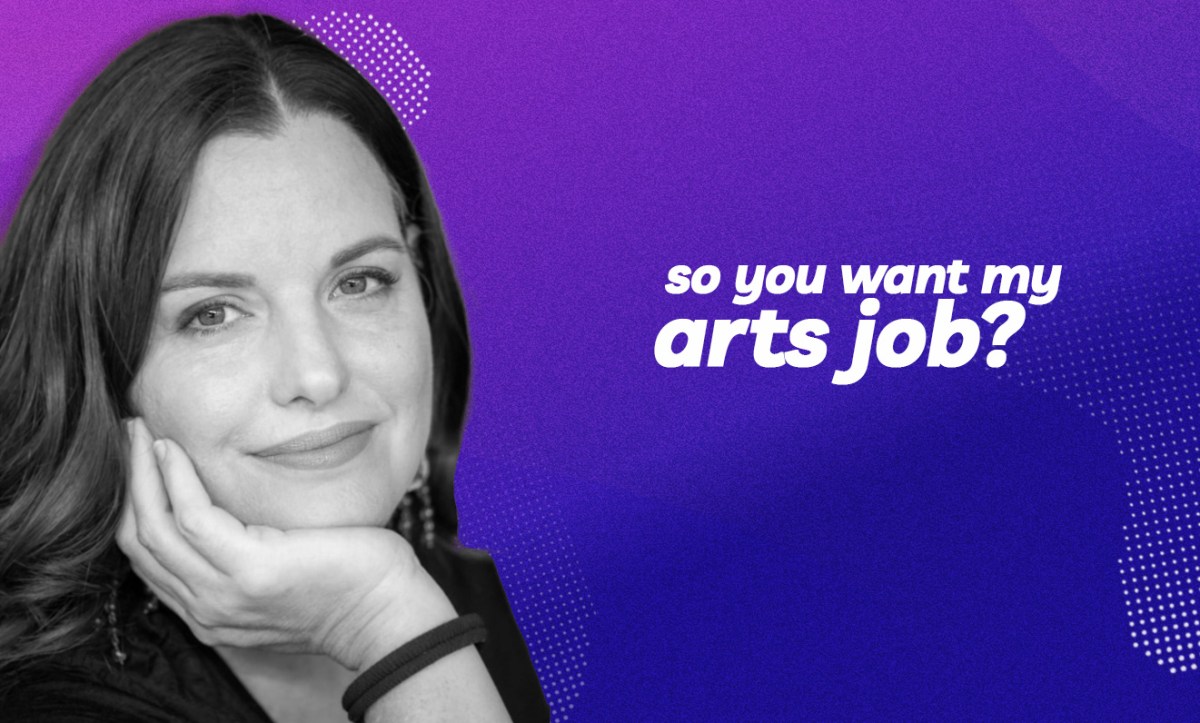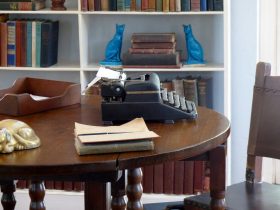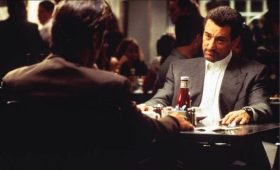Erin O’Dwyer has 25 years of experience in journalism and is also a qualified lawyer. These skills combined gave her unique insight into being a legal editor for The Law Handbook, an annually updated guide that includes practical law knowledge across different sectors, including the arts.
While the job of a specialist legal editor may sound dry, O’Dwyer says it’s anything but boring, and is instead a deeply collaborative process. It’s about keeping current with changes in our world through a legal lens, and communicating those to a general audience in plain, easily understandable language.
Each year, O’Dwyer looks at new developments in our legal framework, and seeks to refresh The Law Handbook to address current discussions, such as migration and topics around the LGBQTIA+ community.
Throughout her career, O’Dwyer has worked as a senior staff journalist for the Fairfax Media stable in Australia, has been a producer for the ABC (Australian Broadcasting Corporation) and an editor for SBS (Special Broadcasting Service), and in 2006 she won the Australian United Nations Media Peace Award for Promotion of Multicultural Issues.
She has also taught journalism and media law at several Australian universities over the past two decades.
How would you describe what you do?
I’m the editor of the The Law Handbook, which has been produced annually by the Fitzroy Legal Service in Victoria since 1977.
The Law Handbook is an institution in Melbourne. It arose out of a collection of handwritten loose-leaf notes collated by volunteer lawyers working in Fitzroy Legal Service’s long-standing free legal clinic, known as the Night Service. It’s a trusted, plain English, practical guide to the law covering everyday legal issues. In truth, many lawyers, barristers and judges keep a copy in their top desk drawer. It’s the last printed hard copy handbook of its kind in Australia.
Around 85 lawyers and legal specialists update their chapter each year. There are around 80 chapters, which cover almost every practical area of law including tenancy, buying a house, employment law, family violence, discrimination and criminal law. For arts workers, there’s a number of useful chapters, including defamation, contracts, trademarks, IP and community activism.
I am also the director of a communications consultancy, Good Prose Studios. My consultancy employs a number of specialist legal editors. We edit academic law journals, legal research papers, law PhD and masters theses, and education materials for lawyers and judges, among other things.
Read: What skills do journalists have to weather the storm of redundancy?
How did you get started in your career as a Legal Editor?
I started as The Law Handbook editor in mid-2023. I am a journalist and editor by training, but I am also legally qualified and practised briefly as a lawyer, so it was a job that brought together a number of my skills.
The most important aspect in producing a handbook of this size (1200 pages) is project management. My background as a journalist means I am hard-wired to meet deadlines and budgets – on time, every time – which is essential on a 12-month project like this. There are many moving parts.
What’s an average day or week like?
For The Law Handbook, I work in intensive blocks throughout the year. For example, my team and I spend a month copy editing and updating each chapter before we send the manuscripts out to contributors. Then there’s another intensive period of editing and proofreading, before the book goes for typesetting. Then there’s another round of proofreading before it is sent to offshore printers.
I also find myself working in short bursts – five minutes here, five minutes there – to keep the project ticking throughout the year. I’m in regular communication with our contributors, our editorial contractors, and with management at Fitzroy Legal Service.
What’s the most common misconception about being a Legal Editor?
That it’s boring! In fact, working on The Law Handbook is anything but boring!
I’m at the cutting edge of changes to the law and my role is to ensure important legal changes are communicated in plain English to the community. It’s also my role to make sure that we add new chapters to the handbook from time to time. For example, we are hoping to add a migration law chapter and a LGBTIQA+ chapter. Last year, new family law changes were introduced right as we were about to send the book for printing. We made last-minute updates, so that the book would be current.
If you were interviewing someone for your job, what skills and qualities would you look for?
- Good project manager – able to manage people, resources, budgets and deadlines.
- Good problem solver – anything that can go wrong will go wrong.
- Community minded – what do people in our community need to know about the law now?
- Nose for news – keep up-to-date on changes in the law so that you are able to consult with contributors and keep the handbook current.
- Patience and attention to detail – editing and proofreading a 1200-page book is a monster!
- Able to build a team – I’m grateful to work with a gun team of editorial contractors, including cover designer, typesetter, ebook publisher, editors, proofreaders, indexer and web developer.
- Stakeholder engagement is also critical – our volunteer contributors are our most valuable resource.
What’s the best thing happening in your field at the moment?
Fitzroy Legal Service, along with a number of partners, has established a working group to develop a generative AI handbook. Essentially, it will be an online tool incorporated into the existing handbook website that proactively adjusts layout, summarises text and answers user questions on demand.
How do you define success in your role?
When the book lands on my desk! It’s a 12-month project each year, so it’s very satisfying when it’s finally delivered.
The 2024 Law Handbook was launched in June; find out more.





